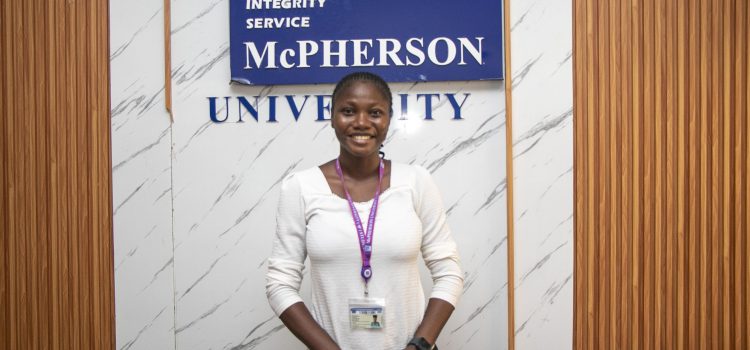A 400 level Nursing Science Student of McPherson University, Olojede Olateju Oluwapamilerin, has shared her experiences in Nursing education to inspire students considering studying the noble profession. She highlighted her passion for Nursing and the rigorous training she is undergoing at the University.
“Nursing has always been a thing of passion for me. Even before it became this lucrative, it has always been Nursing or nothing,” she said. “I feel privileged studying it at McPherson University.”
According to Olojede, McPherson University has played a crucial role in shaping her Nursing journey. “The Institution ensures that Students receive proper training, including Clinical Postings at University Teaching Hospitals, where they learn directly from professionals and gain real world experience” she said.
She however acknowledged that studying Nursing is not without it’s challenges. She described it as a broad and demanding field. “Our lecturers are very attentive and knowledgeable. When we don’t understand something, they ensure we do. We undergo intensive training, examinations and tests; and if you don’t pass, you must resit or retake them until you do,” she explained.
Reflecting on the importance of thorough training, she emphasized that making mistakes in school is preferable to making them in real life scenarios where human lives are at stake. “In school, you can be corrected, but once you’re certified and sent out to practice, the responsibility is on you,” she added.
Olojede also addressed common misconceptions about Nursing, particularly the belief that nurses are merely assistants to doctors. She recounted experiences from her clinical postings, especially in the Accident and Emergency (A&E) Department, where Nurses played a vital role in stabilizing patients before the arrival of doctors. “Yet, patients still ask, ‘Where’s the doctor?'” she noted, expressing concern over the lack of appreciation for nurses.
She emphasized the importance of skills, such as active listening and keen observation, which, she believes are essential, not just for Nurses, but for everyone. “Being able to notice even the tiniest changes can make a huge difference,” she stated.
To ensure that her knowledge stay updated on current nursing practices and medical advancements, she engages in continuous learning by reading journals, having mentors, and watching YouTube videos on new procedures and techniques. She believes that staying updated is crucial for any healthcare professional.
Speaking on the performance of Auxiliary Nurses, compared to University-trained Nurses, Olojede was firm in her stance. “They are not nurses,” she said. “They are trained by a particular hospital or clinic and lack the required knowledge in application. They only follow instructions without understanding if what they are doing is right or wrong, making them susceptible to unethical practices.”










